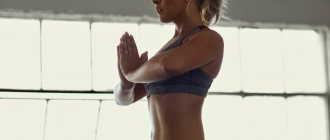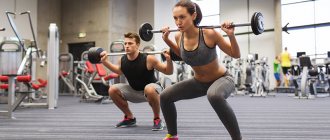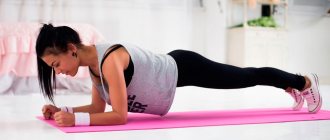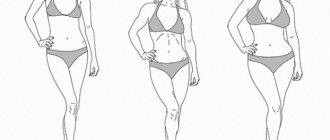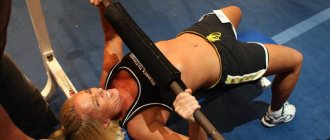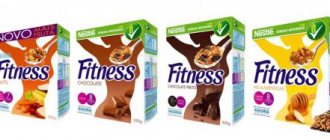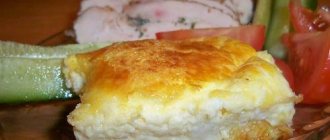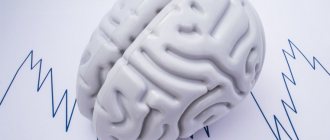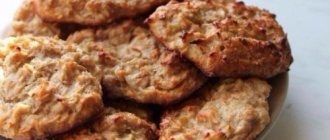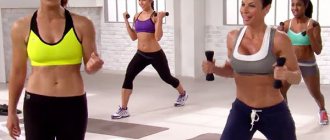Snack
Apples
- 250 gr.
- 130 Kcal
- 0.8 proteins, g
- 0.5 fat, g
- 34.5 carbohydrates, g
Natural yogurt
- 120 gr.
- 85.2 Kcal
- 6.9 proteins, g
- 1.5 fat, g
- 8.4 carbohydrates, g
Snack
- 215.2 Kcal
- 7.7 proteins, g
- 2 fats, gr
- 42.9 carbohydrates, g
How to eat to lose weight effectively
Proper nutrition when playing sports requires following these recommendations:
- Do not go on strict diets, this is fraught with exhaustion of the body and a decrease in athletic achievements.
- Create a calorie deficit; the menu needs to be reduced by 500 kcal or spent during training.
- If you want to increase muscle mass, then supplement your diet with proteins.
- Eat at least 5 times a day with an interval of 3 hours, but in portions not exceeding 280 g.
- Don't skip breakfast, because the first meal is the most important. Higher calorie foods should be consumed in the first half of the day; dinner should be light.
- Replenish your menu with lean proteins, complex carbohydrates, and vegetable fats.
- Eliminate fatty, fried, spicy, salty foods, processed foods, fast food, confectionery, etc. from your diet.
- Avoid alcohol, soda, and tonic drinks (coffee, strong tea, cocoa).
- Drink 2 liters of water in small portions throughout the day.
- Limit the amount of sugar.
Important! You can supplement proper nutrition with vitamin and mineral complexes.
It is very important for an athlete to know how to eat before, during and after training.
Before training
About 2 hours before exercise you need to consume proteins. An athlete can prepare a protein drink. Meals should be light and contain a minimum amount of calories:
- Oatmeal based on milk and water (1:1), egg white omelette.
- Boiled brown rice, a piece of lean meat, a slice of bran bread.
- Steamed fish, boiled potatoes.
A full meal should occur no later than 2 hours before the training. If you can’t eat a full meal, then half an hour before class you can snack on fruits or berries with a low glycemic index, for example, an apple or strawberry, or low-fat dairy products.
During class
Of course, you shouldn’t eat during training, but you need to drink water. The athlete can drink liquid whenever he feels thirsty.
Carefully! If you experience dry mouth, severe fatigue, or dizziness, immediately stop training, drink water and rest. This is how dehydration manifests itself.
Before class, drink 220 ml of still mineral water. When training, drink liquid in small sips at intervals of 15 minutes. In addition to water, you can consume fresh juices made from fresh fruits or berries. But if you are overweight, it is better to stick to regular or mineral water.
If the class lasts longer than 60 minutes, then prepare a protein shake.
After the training
After the gym, the athlete should eat protein and carbohydrate foods no later than 2 hours later. They will help compensate for wasted energy, relieve hunger, speed up metabolism, fat burning, recovery and muscle growth.
The following dishes will help compensate for protein concentration after training:
- Boiled lean meat.
- Omelet without yolks.
- Steamed fish.
- Low-fat sour milk.
The best sources of complex carbohydrates are natural cranberry or grape juice.
Important! It is forbidden to consume fats within 2 hours after training.
Best Products
Nutritionists and fitness experts advise supplementing your diet with the following foods:
- Milk and milk products with a fat content of 2-5%.
- Brown rice, pearl barley, buckwheat, oatmeal.
- Egg whites.
- Fresh juices from fresh vegetables and fruits.
- Meat of chicken, turkey, rabbit, etc.
- Lean fish.
- Seafood.
- Vegetable oils.
- Nuts, seeds (small amount).
- Greenery.
- Seasonal vegetables, fruits.
Whole grain bread and grade A pasta are valuable sources of complex carbohydrates.
Forbidden food
To speed up fat burning and increase muscle mass, the athlete needs to give up the following foods:
- Fatty duck, pork, goose, lamb.
- Halibut, sturgeon, sardines and other very fatty fish.
- Semi-finished products, fast food.
- Canned food, marinades, pickles, smoked meats.
- Pastries, cream products, ice cream, etc.
- Store-bought sauces.
- Millet flour products.
- Snack products (chips, crackers).
- Fat milk and products made from it (more than 6%).
Also, athletes are strictly not recommended to drink alcohol.
Menu option for the day
When doing fitness, an athlete can eat as follows:
- Breakfast – omelet without yolks or stewed vegetables, whole grain toast with nut butter, green tea.
- Lunch – soup in vegetable broth with cereal, buckwheat in water, a piece of boiled meat, compote.
- 2 hours before training – cottage cheese with dried fruits.
- After classes - vegetable stew.
- Dinner – a glass of natural yogurt, biscuits.
The menu should be varied, the main thing is to use products from the list of permitted ones.
Snack
Cottage cheese (fat content 2%)
- 150 gr.
- 135 Kcal
- 20.6 proteins, g
- 2.9 fat, g
- 5.4 carbohydrates, g
Cashew
- No more than 8 nut kernels. You can choose another nut: almond/hazelnut/walnut
- 55.1 Kcal
- 1.9 proteins, g
- 4.4 fat, g
- 3 carbohydrates, g
Snack
- 190.1 Kcal
- 22.5 proteins, g
- 7.3 fat, g
- 8.4 carbohydrates, g
Myth 14: Long-term cardio is beneficial
This is a rather controversial myth. Tatyana said that she studied many scientific studies that indicate the dangers of long-term cardio for the body, in particular for the joints. However, the experience of professional runners may prove otherwise.
Which is correct?
Unless you're aiming to join the ranks of elite marathon runners, it's best to stick to the safe principle of everything in moderation. Cardio exercise should be included in your training plan, but only so as not to push yourself until your side hurts and your heart rate goes through the roof. Up to 15-20 minutes of running at an average pace is the best option.
In pursuit of six packs: why you shouldn’t train your abs every day
Dinner
Atlantic salmon
- Grilled or steamed. You can choose less fatty fish, such as chum salmon. Or give preference to white fish: sea bass, dorado, rainbow trout
- 273 Kcal
- 38.3 proteins, g
- 12.2 fat, g
- 0 carbohydrates, g
Vegetable salad
- From fresh vegetables, without salt, with a little added oil
- 32 Kcal
- 2.6 proteins, g
- 0 fat, g
- 6.4 carbohydrates, g
Dinner
- 305 Kcal
- 40.9 proteins, g
- 12.2 fat, g
- 6.4 carbohydrates, g
Total:
- 1423.3 Kcal
- 113.7 proteins, g
- 45.8 fat, g
- 154.9 carbohydrates, g
The importance of proper diet during intense training
Nutrition during fitness is not a strict diet, but a complete, varied menu. The basis of an athlete’s diet is proteins and carbohydrates. For proper functioning of the body, you should consume vegetable fats.
Products high in protein must be in an athlete’s diet. These substances stimulate metabolic processes and are involved in muscle building. With a lack of protein, muscles cannot grow and strengthen. Protein food is necessary, even if a person wants to lose weight, it speeds up metabolism and the fat burning process.
Complex carbohydrates are necessary to restore energy reserves. With a lack of these nutrients, the athlete feels constant fatigue and exhaustion. Then the effectiveness of the training decreases, which negatively affects sports results.
Important! If your goal is to lose weight, then you need to limit the amount of simple carbohydrates as much as possible. They can be consumed in minimal quantities after training.
When playing sports, it is recommended to reduce the amount of foods rich in animal fats. It is better to replace them with substances of plant origin. You shouldn’t completely give up fats, as they are necessary for the normal functioning of many body systems. In addition, these nutrients in minimal quantities promote fat burning.
It is also necessary to maintain a drinking regime during training. Plain water stimulates the intestines, promotes the absorption of nutrients, improves the motility of the digestive organs, and accelerates the elimination of toxic substances.
This is interesting! To speed up metabolic processes, improve the functioning of the gastrointestinal tract, and stimulate fat burning, you need to consume water and fiber.
Be sure to check out:
Fitness for the abs at home and in the gym Fitness for beginners: competent workouts for a toned figure and healthy body Fitness at home: a sporty and toned figure Effective fitness workouts for losing weight
Secrets of proper nutrition
We organize meals
- Before you start throwing yourself into the pool, put your refrigerator in order. It is worth throwing away products that clog your body: ketchup, mayonnaise, other store-bought sauces, such as tartar, milk chocolate, white bread, sausages, packaged juices, sweet soda, etc. It's easier to start when there are no temptations around. Stock your refrigerator with healthy food.
Before you start stuffing yourself with your favorite chocolate bar, think about what beneficial substances your body can take from this product? - That's right, none. The entire eaten chocolate will quickly go into the hated fold.
- Start filling out a diary in one of the calorie counting apps. Just write there everything that you grabbed without thinking. Analyze what and how you eat.
By analyzing your eating habits, it will be easier for you to follow the principles of healthy eating.
- Go to the store, or even better, to the market, and fill your refrigerator with necessary and healthy products.
When purchasing products, read the ingredients. Give preference to fresh vegetables, fresh fish, meat and dairy products.
Frequency and regularity of meals
In addition to counting calories, pay attention to portion sizes. This will take your mind off calories and allow you to focus on eating a varied diet that will help you achieve your ideal figure. Through nutrition and the cooking process, you will get the results you want faster.
While your friends are starving, the real secret to staying slim lies in frequent meals. You may tend to think that by staying hungry for a long time, you are thereby reducing your calorie intake. Although in fact this deficiency will be replenished in the evening. All you want to do in the evenings is eat, eat, eat. And, as a rule, not the healthiest food.
Do you limit yourself to food all day, and in the evening you use everything that can be called edible? — This behavior also falls into the category of an eating disorder.
Develop the habit of eating 5-6 times a day: 3 small meals and 2-3 short snacks.
Did you know that the body also spends energy on digesting food? - Take advantage of this: eat often, but not much.
If your goal is to speed up your metabolism, then this is where you should start. This method may seem complicated at first.
Of course, it's much easier to just sip coffee and skip breakfast. Make an effort. After a week or two, you'll find that you actually look forward to small meals and snacks and will wonder what you ever could have done differently.
Cooking tools
If you want to get the most out of it, the best way to do this is to eat often and prepare your food properly.
Use more natural seasonings based on onions, garlic, and herbs. We cook in a slow cooker or oven; we exclude frying altogether. Frozen foods need to be thawed and washed.
What you can eat and how
Breakfast
For the main breakfast, if you have had poor or insufficient sleep, it is better to eat foods mainly containing fats. If you had a strength or heavy long-term workout the day before, it is better to eat more protein for breakfast. In other cases, you can eat a little dark chocolate for breakfast, or any other product with a medium or even high glycemic index; in the morning you have a high metabolism, you can afford it.
Mark! Chocolate is not Twix or Mars. You can only have a piece of dark natural chocolate, a handful of raisins, a spoonful of honey, dried fruits.
Dinner
Lunch is the main meal of the day; you should try to eat 50% of your daily carbohydrate intake for lunch.
Dinner
For dinner you need to eat a lot of vegetables and 50 - 60% of the daily protein intake.
Snacks
Try to make snacks mainly from complex carbohydrates and protein. Just for small snacks, 1 handful of nuts or a protein bar is enough. Or others (only read the labels, there should be no sugar or other garbage)
Fluid intake
After waking up, you need to drink 200 ml of water. Tea and coffee should be served at least 30 minutes after the main meal. Drink at least 2.5 liters of water (liquids) per day. After training you need to drink 200 ml, and after 15 - 20 minutes start drinking as needed. Avoid juices completely. It is better to drink tan or ayran from dairy products.
Weekends and restaurants
Sticking to your weekend goals can be quite difficult, especially if you don't have healthy eating habits around you. Here are our tips for this case:
- If you're going to a restaurant, order wisely. You ask what sauce is in the salad. You have the right to choose a different salad dressing: low-fat natural yogurt, butter + balsamic, or even lemon juice.
- Otherwise, ask for the sauce to be served on the side, choose grilled meats, and instead of rice and pasta, choose fresh vegetables. You can also share your portion with a friend or ask to pack some to take with you. You don't have to eat everything.
- Many restaurants offer the option to order a half portion. Feel free to ask if there is such an opportunity in the establishment.
- As for drinks, give preference to water with lemon or mint. Remember! Alcohol is prohibited when losing weight, and excess sugars from soda are quickly stored in fat.
Small changes like this will have a long-lasting impact: you'll enjoy your food without disrupting your program.
Sports diets for men
The basis for sports diets for various tasks is identical, only the daily calorie intake and energy consumption on training and rest days differ.
For weight loss
When the goal of maintaining a sports diet is to lose excess weight, it is important to control caloric intake and dietary fat. You can reduce your caloric intake by:
- replacing bakery products and bread with whole grain bread;
- transfer part of the consumed carbohydrates to fiber;
- when choosing meat, give preference to lean varieties;
- choose fillet from chicken, turkey;
- milk, low-fat dairy products.
Sports supplements such as L-carnitine and specialized fat-burning complexes will help increase energy consumption during training. Improves weight loss and the functioning of the body as a whole, a complex of omega-3, omega-6 fatty acids.
Contain polyunsaturated fats in nuts, fatty fish, and vegetable oils. The deficiency of substances is replenished with pharmaceutical drugs.
For weight gain
Gaining muscle mass is not just about hard training in the gym with additional weights. To achieve the goal, it is important to take a serious approach to the diet - athletes increase caloric intake by adding mainly protein and carbohydrate foods.
Without a calorie surplus, no training program will work on mass gain.
Girls' nutrition during training
The metabolism of men and women is very similar, except that women are good at burning fat, using it as a source of energy, better than men. This may be one of the reasons why women should choose a low-carb diet.
The main thing to establish is your total calorie intake. Women need fewer calories than men because men have more muscle mass and less fat (relative to total body weight) than women. The amount of proteins, carbohydrates and fats is determined by the number of calories consumed.
We'll show that women don't need to exercise or eat differently than men. Then why do we always see women in the gym doing hours of cardio and lifting light dumbbells for endless reps?
This is most likely due to poor awareness or even misinformation (from the media) about how a woman should exercise. What about diet? One of the most commonly recommended breakfasts for women is yogurt and banana. There's nothing wrong with yogurt or a banana, but where are the protein and polyunsaturated (essential) fatty acids? If you are a woman trying to build muscle, you need to eat enough protein and good fats (essential fatty acids). It's time to stop the media flipping and personal misinformation, and it's time to get educated and get results. In this article we will introduce some basics on nutrition and training!
Main conclusions
As you can see, proper nutrition during fitness is of great importance. To achieve his goals (weight loss, muscle building), the athlete must follow these recommendations:
- Create a menu taking into account the proportions of proteins, fats, and carbohydrates.
- Replace simple carbohydrates with complex ones, and animal fats with vegetable ones.
- Create a calorie deficit, but do not deplete yourself with strict diets.
- In the first half of the day, consume more high-calorie foods, and in the evening – light ones.
- Eat proteins and carbohydrates 2 hours before training.
- Drink water in small sips during exercise.
- Consume proteins and carbohydrates within 2 hours after the gym.
- Eat 5-7 times a day, but in portions of no more than 280 g.
- Avoid fatty, fried, spicy, salty foods, processed foods, fast food, etc.
- Eat more vegetables, lean meat, dairy, fish, whole grains, etc.
- If an athlete decides to go on a strict diet, then before following it you need to consult a doctor about the presence of contraindications.
- Reduce physical activity during a fast.
- Gradually return to your normal diet after emergency weight loss.
But it is better to avoid strict diets when doing fitness, as they cause exhaustion and provoke an exacerbation of chronic diseases. Nutrition must be complete and varied so that the athlete’s body receives all the necessary nutrients. Then losing weight will not be as fast, but less dangerous.
Materials used when writing this article
https://www.theguardian.com/lifeandstyle/2010/sep/19/exercise-dieting-public-health https://familydoctor.org/nutrition-for-athletes/ https://sportwiki.to Nutrition during training https //cyberleninka.ru/article/n/osobennosti-motivatsionnoy-sfery-dvigatelnoy-aktivnosti-i-organizatsii-pitaniya-zanimayuschihsya-fitnesom
Diet options for emergency weight loss with exercise
Let's find out how to eat to lose weight quickly. There are many diet options, but they can be dangerous to your health, so it is important to carefully monitor your well-being.
Emergency diet options:
| Diet name | The essence | Result |
| Cucumber | The basis of the diet is cucumbers. In addition to this vegetable, you can eat low-fat fermented milk products, fruits, berries, and other vegetables. An athlete can eat stewed cabbage with cucumber salad, drink a vegetable smoothie, and have 1 fresh cucumber and an apple for dinner. | In 3 weeks you can reduce weight by 5-15 kg |
| Kefir | You can only consume kefir, preferably no more than 2.5% fat content. | From 5 to 10 kg in 10 days |
| Citrus | It is allowed to eat grapefruits, oranges, pomelo, etc. They can be eaten fresh, made into juices or salads. | Up to 7 kg per week |
| Dairy | The basis of the diet is skim milk. It is also allowed to eat natural yoghurts, kefir, cottage cheese (with zero fat content). | Up to 2 kg per week |
| Vegetable | Eat only vegetables 5 times a day, a portion of food does not exceed 280 g. Foods can be boiled, steamed, baked (without oil) or eaten raw. There are a lot of vegetables, so the diet is quite varied. | Up to 10 kg per month |
| Emergency | In the first week, drink only low-fat kefir, the next 5 days - fresh vegetables or berries, then a one-day hunger strike follows. The remaining 5 days are allowed to consume vegetable or meat (low-fat meat) broths. Requires a gradual return to the regular menu. | Up to 15 kg |
Carefully! You cannot follow a citrus diet for more than a week, as there is a risk of damage to the mucous membrane of the digestive organs.
There is another option for a strict hunger strike, during which a person eats light plant foods for 1 day, and on the second day drinks only water. The fast lasts 2 weeks and allows you to lose about 15 kg.
It is important to properly combine nutrition and exercise. If the diet is very strict, then the athlete should perform simple, low-impact exercises. With a varied diet (for example, a vegetable diet), the intensity of the training can be increased.
Before following a diet, you should consult your doctor, as many of them are dangerous to health. Hunger strikes threaten exhaustion of the body, exacerbation of chronic diseases, and deterioration in the functionality of many organs.

